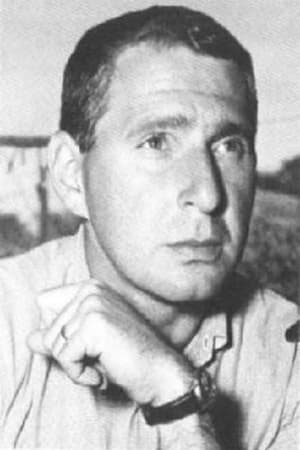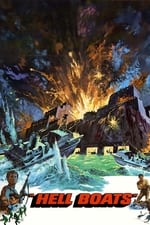Informations personnelles
Célèbre pour Réalisation
Apparitions connues 87
Genre Homme
Date de naissance 20 septembre 1925
Date de décès 12 novembre 2009 (84 ans)
Lieu de naissance Philadelphia, Pennsylvania
Alias
- -
Score de contenu
100
Superbe ! Cette fiche semble complète !
Connectez-vous afin de
signaler un problème.
Biographie
From Wikipedia, the free encyclopedia.
Paul Wendkos (September 20, 1922; Philadelphia, Pennsylvania – November 12, 2009; Malibu, California) was an American television and film director.
Following wartime service in the US Navy and attending Columbia University on the GI Bill Wendkos made his first feature, a documentary on a school for the blind called Dark Interlude in 1953.
Wendkos's first feature film was The Burglar . Wendkos's fluid camera technique caught the attention of the head of Columbia Pictures chief Harry Cohn who not only wished to distribute the film, but put Wendkos on a contract.
A variety of films followed for Columbia beginning with the hard-hitting crime drama The Case Against Brooklyn, two suspenseful war dramas Tarawa Beachhead and Battle of the Coral Sea, the youth-oriented Gidget and two sequels Gidget Goes Hawaiian, Gidget Goes to Rome as well as Because They're Young.
Wendkos also directed many episodes of Playhouse 90, Alcoa Theatre, Ben Casey, Dr. Kildare, Route 66, The Rifleman, Mr. Novak, Honey West, The Big Valley, I Spy, The Invaders and Hawaii Five-O. With I Spy, Wendkos filmed several interesting episodes but was deemed too "arty" by the producers and let go.
In 1968 Wendkos signed a five picture contract with Mirisch Productions beginning with the war films Attack on the Iron Coast and Hell Boats followed by Westerns set in Mexico but filmed in SpainGuns of the Magnificent Seven and Cannon for Cordoba. He also made the first feature film for Quinn Martin, The Mephisto Waltz.
From 1970 until his retirement in 1999, Wendkos specialized in made-for-television movies. One of these was The Taking of Flight 847: The Uli Derickson Story (1988), based on a TWA hijacking in 1985, picked up five Emmy nominations, including one for Wendkos.
Wendkos was cited by film critic Andrew Sarris in his book The American Cinema: Directors and Directions 1929-1968. He is also cited, along with many other directors, in The American Vein: Directors and Directions in Television by Christopher Wicking and Tise Vahimagi, Talisman Books (England), 1979, and E.P. Dutton (United States), 1979; Library of Congress Catalog Card No. 79-52675.
Wendkos married Ruth Bernat on March 1, 1953 and had one son, Jordan Elkan Wendkos. Ruth died in June, 1978. Wendkos married Lin Bolen, Former NBC VP & Producer in 1983 and they lived together happily in Malibu, California until his death. He is survived by his son, Jordan, granddaughter, Justine Wendkos, and his wife Lin Bolen Wendkos.
Wendkos was ill for several years following a stroke. He died on November 12, 2009 in Malibu, California.
Description above from the Wikipedia article Paul Wendkos, licensed under CC-BY-SA, full list of contributors on Wikipedia.
From Wikipedia, the free encyclopedia.
Paul Wendkos (September 20, 1922; Philadelphia, Pennsylvania – November 12, 2009; Malibu, California) was an American television and film director.
Following wartime service in the US Navy and attending Columbia University on the GI Bill Wendkos made his first feature, a documentary on a school for the blind called Dark Interlude in 1953.
Wendkos's first feature film was The Burglar . Wendkos's fluid camera technique caught the attention of the head of Columbia Pictures chief Harry Cohn who not only wished to distribute the film, but put Wendkos on a contract.
A variety of films followed for Columbia beginning with the hard-hitting crime drama The Case Against Brooklyn, two suspenseful war dramas Tarawa Beachhead and Battle of the Coral Sea, the youth-oriented Gidget and two sequels Gidget Goes Hawaiian, Gidget Goes to Rome as well as Because They're Young.
Wendkos also directed many episodes of Playhouse 90, Alcoa Theatre, Ben Casey, Dr. Kildare, Route 66, The Rifleman, Mr. Novak, Honey West, The Big Valley, I Spy, The Invaders and Hawaii Five-O. With I Spy, Wendkos filmed several interesting episodes but was deemed too "arty" by the producers and let go.
In 1968 Wendkos signed a five picture contract with Mirisch Productions beginning with the war films Attack on the Iron Coast and Hell Boats followed by Westerns set in Mexico but filmed in SpainGuns of the Magnificent Seven and Cannon for Cordoba. He also made the first feature film for Quinn Martin, The Mephisto Waltz.
From 1970 until his retirement in 1999, Wendkos specialized in made-for-television movies. One of these was The Taking of Flight 847: The Uli Derickson Story (1988), based on a TWA hijacking in 1985, picked up five Emmy nominations, including one for Wendkos.
Wendkos was cited by film critic Andrew Sarris in his book The American Cinema: Directors and Directions 1929-1968. He is also cited, along with many other directors, in The American Vein: Directors and Directions in Television by Christopher Wicking and Tise Vahimagi, Talisman Books (England), 1979, and E.P. Dutton (United States), 1979; Library of Congress Catalog Card No. 79-52675.
Wendkos married Ruth Bernat on March 1, 1953 and had one son, Jordan Elkan Wendkos. Ruth died in June, 1978. Wendkos married Lin Bolen, Former NBC VP & Producer in 1983 and they lived together happily in Malibu, California until his death. He is survived by his son, Jordan, granddaughter, Justine Wendkos, and his wife Lin Bolen Wendkos.
Wendkos was ill for several years following a stroke. He died on November 12, 2009 in Malibu, California.
Description above from the Wikipedia article Paul Wendkos, licensed under CC-BY-SA, full list of contributors on Wikipedia.
Réalisation
|
|||||||||||||||
|
|||||||||||||||
|
|||||||||||||||
|
|||||||||||||||
|
|||||||||||||||
|
|||||||||||||||
|
|||||||||||||||
|
|||||||||||||||
|
|||||||||||||||
|
|||||||||||||||
|
|||||||||||||||
|
|||||||||||||||
|
|||||||||||||||
|
|||||||||||||||
|
|||||||||||||||
|
|||||||||||||||
|
|||||||||||||||
|
|||||||||||||||
|
|||||||||||||||
|
|||||||||||||||
|
|||||||||||||||
|
|||||||||||||||
|
|||||||||||||||
|
|||||||||||||||
|
|||||||||||||||
|
|||||||||||||||
|
|||||||||||||||
|
|||||||||||||||
|
|||||||||||||||
|
|||||||||||||||
|
|||||||||||||||
|
|||||||||||||||
|
|||||||||||||||
|
|||||||||||||||
|
|||||||||||||||
|
|||||||||||||||
|
|||||||||||||||
|
|||||||||||||||
|
Production
|
|||
|
|||
|
Création
|
Montage
|








